New Scientist covers the latest developments in science and technology that will impact your world. New Scientist employs and commissions the best writers in their fields from all over the world. Our editorial team provide cutting-edge news, award-winning features and reports, written in concise and clear language that puts discoveries and advances in the context of everyday life today and in the future.
Elsewhere on New Scientist
Trash talk • It is too soon to write off innovative technologies that could end plastic waste
New Scientist
A very unusual jewel blooms
When did humans first travel north? • Evidence of human presence in Siberia 417,000 years ago indicates that hominins travelled north much earlier than we thought – and may even have reached North America, says Michael Le Page
Knot theory could help spacecraft shift to new orbits for free
Your DNA seems to influence how much you like listening to music
Groups of single-celled creatures could explain how embryos evolved
Cocaine may hijack the way the brain prioritises food
Narrow window for geoengineering • Shading the planet might stop the West Antarctic ice sheet melting, but only if done soon
Drug residue can be detected in fingerprints
Single atoms caught becoming waves • Quantum mechanics predicts a strange dual identity for particles, and now we have seen it in action
Ancient Maya burned dead rulers to mark new dynasty
Skin-deep wounds can affect gut health
Extreme heat in 2023 linked to slump in growth of marine life
Nocturnal ants use polarised moonlight to find their way
Ships smuggling Russian oil spotted in satellite images by AI
Is Amazon’s robotic lab a vision of the automated future? • The online retailing giant says robots will work alongside humans, but fears over job losses persist, says Alex Wilkins
What caused the floods in Dubai? • Cloud seeding almost certainly didn’t play a big role in the flooding on the Arabian peninsula, but the heavy rains may have been exacerbated by climate change, says James Dinneen
Particles create hypnotic patterns • If a particle never retraces its steps, its trail can create stunning images
Wing-based turbines generate more energy
World’s biggest ‘brain-like’ computer • Neuromorphic devices could improve the capabilities of artificial intelligence models
Ancient humans lived in a lava tube in the Arabian desert
Diet changes relieve IBS better than drugs
Bumblebees survive a week underwater
The ‘biggest’ marine reptile to have lived found on beach
Really brief
Saying the C-word • We need to modernise our emotional relationship with cancer. Our fear is doing great harm all by itself, argues David Ropeik
Artificially intelligent • A game of whack-a-mole AI companies try to curb chatbots’ worst exploits, while researchers find ways around the safety measures. Where will this end, asks Alex Wilkins
In hot water
The hunt for pure consciousness • Deep meditation can take us to states where the sense of self vanishes and time dissolves. Recognising them may be crucial to cracking consciousness and improving our daily lives, finds Alun Anderson
Views from the meditators
The film column • Missing MacGuffin In Breathe, Earth is stripped of its oxygen, the plants are dead, oceans are dried up, no one trusts anyone – but we don’t know what caused it. This one-room thriller is a lesson in not taking your scenario seriously, says Simon Ings
Your letters
Reality collider • The world’s biggest particle smasher could unravel the true meaning of quantum theory, says Michael Brooks
Make plastic fantastic again • What if we could endlessly...

 Jan 10 2026
Jan 10 2026
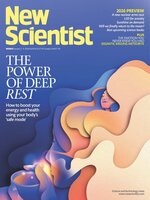 Jan 03 2026
Jan 03 2026
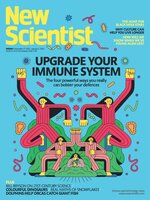 Dec 27 2025
Dec 27 2025
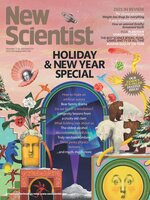 13-26 December 2025
13-26 December 2025
 Dec 06 2025
Dec 06 2025
 Nov 29 2025
Nov 29 2025
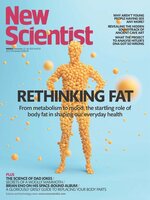 Nov 22 2025
Nov 22 2025
 Nov 15 2025
Nov 15 2025
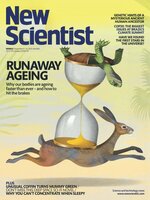 Nov 08 2025
Nov 08 2025
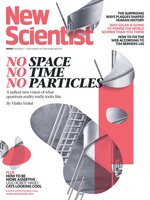 Nov 01 2025
Nov 01 2025
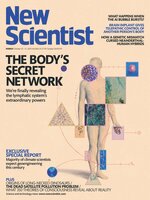 Oct 25 2025
Oct 25 2025
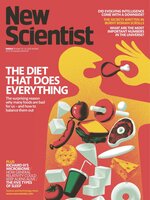 Oct 18 2025
Oct 18 2025
 Oct 11 2025
Oct 11 2025
 Oct 04 2025
Oct 04 2025
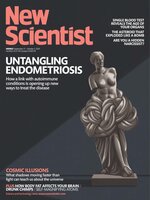 Sep 27 2025
Sep 27 2025
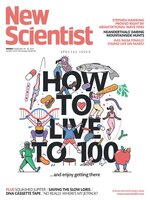 Sep 20 2025
Sep 20 2025
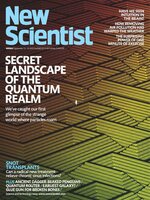 Sep 13 2025
Sep 13 2025
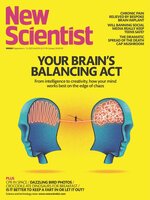 Sep 06 2025
Sep 06 2025
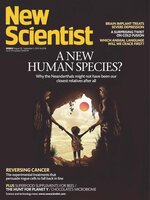 Aug 30 2025
Aug 30 2025
 Aug 23 2025
Aug 23 2025
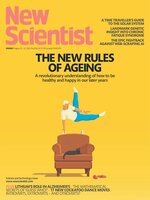 Aug 16 2025
Aug 16 2025
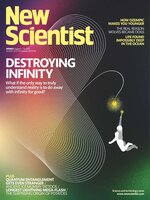 Aug 09 2025
Aug 09 2025
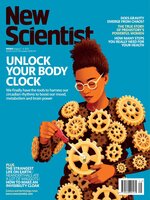 Aug 02 2025
Aug 02 2025
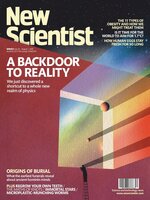 Jul 26 2025
Jul 26 2025